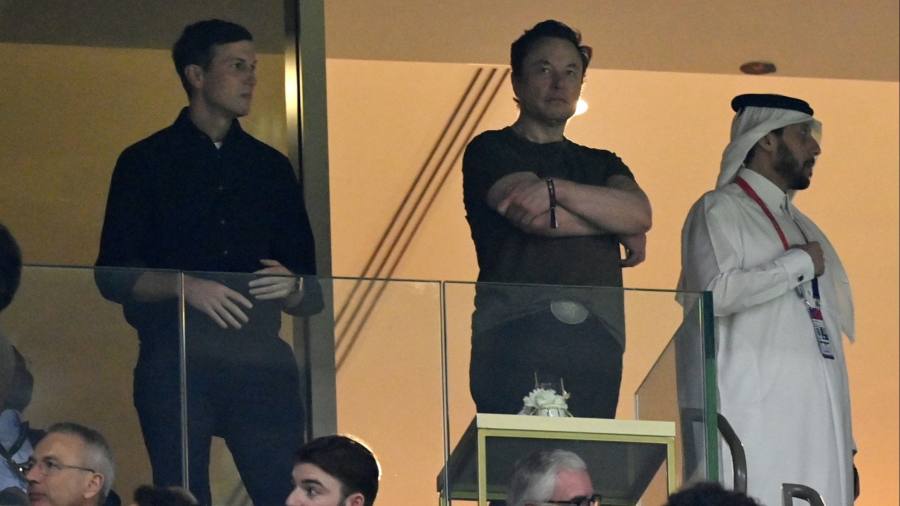Elon Musk has launched a Twitter poll asking users if he should step down as head of the social media platform and pledged to honour the result, after a backlash to a new policy banning the promotion of accounts on rival platforms.
The billionaire entrepreneur, who bought Twitter for $44bn in October and is its chief executive, wrote to his 122mn followers on Sunday night: “Should I step down as head of Twitter? I will abide by the results of this poll.”
Musk later tweeted: “No one wants the job who can actually keep Twitter alive. There is no successor.”
The poll is open for 11 hours and with eight hours left, more than 8mn had voted, with 57 per cent in favour of him stepping down and 43 per cent against.
The move comes after Twitter announced earlier on Sunday a new policy banning users from sharing links to their accounts on rival platforms, including Mark Zuckerberg’s Facebook and Instagram, as well as emerging Twitter rival Mastodon, Donald Trump’s Truth Social, plus Tribel, Nostr and Post.
“We know that many of our users may be active on other social media platforms; however, going forward, Twitter will no longer allow free promotion of specific social media platforms on Twitter,” the company said in a post.
Initial offences could result in temporary suspensions or a requirement to delete the offending tweet, but repeat offenders risk permanent suspension, it said.
“Twitter should be easy to use, but no more relentless free advertising of competitors. No traditional publisher allows this and neither will Twitter,” Musk said on the platform earlier on Sunday.
However, the policy sparked immediate criticism from Musk’s detractors and even some of his high-profile Silicon Valley allies for being too restrictive.
The SpaceX and Tesla chief executive then responded by saying that the policy would be “adjusted” so that suspensions would only apply “when that account’s primary purpose is promotion of competitors”.
In a separate tweet, he wrote: “Going forward, there will be a vote for major policy changes. My apologies. Won’t happen again.”
The move is the latest shake-up since Musk took the helm, firing around half of its staff, cutting costs and overhauling its verification and moderation processes.
It comes two days after Musk also suspended several high-profile US journalists from Twitter, suggesting they fell foul of a recently created policy on sharing location information. The journalists, including Ryan Mac of the New York Times and Donie O’Sullivan of CNN, have since been reinstated. On Friday, EU and UK politicians expressed concern over the suspensions and press freedom.
Sunday’s policy change drew scrutiny from some of Musk’s supporters in Silicon Valley including former a16z partner Balaji Srinivasan, who wrote: “This is a bad policy and should be reversed. The right way to compete is to build a better product, not to restrict the use of your product.”
Meanwhile, Paul Graham, the founder of the Y Combinator start-up incubator who had previously praised Musk as he took over Twitter, wrote: “This is the last straw. I give up”, before adding that his website had a link to his Mastodon account. He was then suspended from the platform for the tweet.
Jack Dorsey, Twitter’s former chief executive who invested in one of the banned platforms Nostr, tweeted that the policy “doesn’t make sense”.
Other critics argue that the move is likely to be unpopular among creators, most of whom have built up audiences across multiple platforms, and is at odds with Musk’s pledge to be a free speech proponent. Musk has brought back accounts that were permanently banned under the previous leadership, such as that of former US president Donald Trump.
Experts also warn that the policies could draw scrutiny from EU and US regulators. “These [policies] are clearly anti-competitive . . . as they seem to prevent communication across consumers comparing competitors,” said Pinar Yildirim, associate professor of economics and marketing at the Wharton School of the University of Pennsylvania.
Before Sunday’s policy was announced, many Twitter users attempting to share links to their own Mastodon profiles were prevented from doing so, with the site flagging the posts as “potentially harmful”.
Credit: Source link














